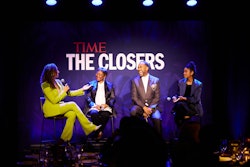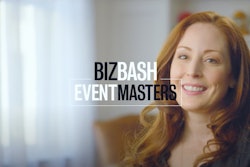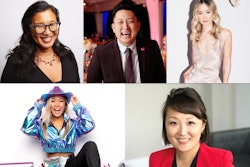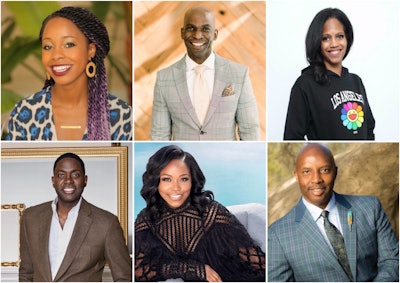
In the wake of growing protests and national conversations on the role of racism and police brutality, industries across the board have begun looking inward to examine their own issues of systemic inequality. And that includes the event and meeting industries.
To learn more about why racial diversity is crucial to events, where the industry has been lacking, and what the first steps are for change, BizBash reached out to six prominent event professionals around the country. Here's what they had to say.
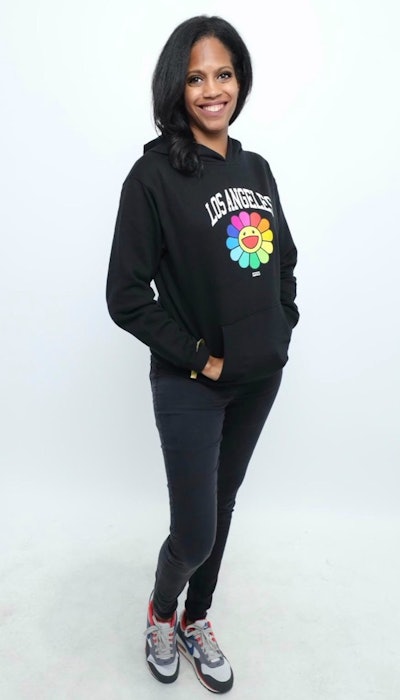 Photo: Courtesy of Anika D. Grant
Photo: Courtesy of Anika D. Grant
Grant is the founder and CEO of Idlewild Experiential, a New York-based company focusing on live events, pop-ups, and festivals. Before founding the firm in 2018, Grant oversaw client solutions and sponsorships for the Essence Festival; she has also held roles at Madison Square Garden, Jazz at Lincoln Center, and the New York City Ballet.
Why racial diversity is crucial: "There is an ecosystem within the event industry that supports multiple layers of small businesses, individual consultants and producers, creatives, artists, and more. Without this ecosystem of support, events would not happen. Unfortunately, racially diverse companies and individuals are many times left out of this ecosystem—and are not given access to the projects at the same rate. When racially diverse companies do succeed in landing projects, I’ve found that they’re often pigeonholed into only working on multicultural projects.
As an industry, we are doing a disservice to our clients by not seeking out racial diversity in vendors we choose, staff we hire, the venues we choose to activate within. We have the ability to diversify this ecosystem, even if our clients are not demanding it.
Racial diversity is crucial because, without it, our industry is missing out on the innovative approaches and perspectives that vendors from different racial backgrounds can bring."
Where the industry is lacking: "There is a serious lack of racial diversity in leadership across all areas of the industry, from trade organizations and publications to major agencies and large companies. Sadly, with the lack of diversity at the top, this extends to those who get hired and trained. It’s cyclical."
The first step for change: "Be intentional about supporting racially diverse companies and vendors. Hire more racially diverse leadership within your company, and proactively train and mentor a racially diverse group of entry-level staffers.
In this country, we are kidding ourselves if we believe creating diversity is a passive act. Brands and larger experiential agencies must seek partnerships with racially diverse companies and experts, and not be afraid to admit that our professional and social circles and resources are generally not as diverse as we think.
Take initiative and reach out to your racially diverse colleagues in the industry and ask them for support in finding diverse resources. Create opportunities for smaller diverse agencies and vendors to collaborate with larger, more established companies to learn and grow their capacities for larger projects. Change will only happen if racially diverse companies are given more opportunities to grow their client base and can get access to more resources. They say the first step is the hardest one, and it's time for everyone to step up and ensure their statements of support translate into real action and change."
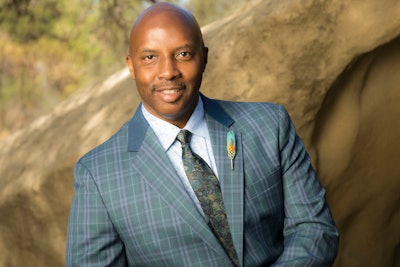 Photo: Courtesy of William P. Miller
Photo: Courtesy of William P. Miller
Miller is the owner of WP Miller Special Events, a full-service planning and production firm based in Los Angeles. Founded in 1999, the company regularly plans conferences, fundraisers, galas, and other events across North America, Africa, Asia, Europe, and the Caribbean.
Why racial diversity is crucial: "It broadens growth opportunities, cultivates creativity, and unites what might be unfamiliar. The world is made up of various ethnicities as well as cultures. There will be greater success within the special events industry when there are pipelines in place to understand and engage what seems to be different. When doing so, we find that we have more things in common than different. As an industry of creatives, we should have a mindset to celebrate different perspectives. Not doing so will stifle evolvement and foster a mundane industry culture."
Where the industry is lacking: "Engagement, access to opportunities, and leadership. On the surface, it appears there is interest and a welcoming door at various special event conferences, organizations, and publications as well as venues. However, people of color are often dismissed or [don't] feel welcome. I have seen many conferences that give their platform to the 'in' crowd or the social media socialite, and not necessarily to the best person, which leads to exclusion for people of color because many are not a part of that 'in' crowd.
When I peruse a magazine that targets the Black special events community, there's an absence of advertisements from non-Black-owned suppliers and venues. The translation is that Black readers are not their target audience—therefore it's not worthy to spend dollars to advertise with Black-owned publications.
The industry doesn’t often spotlight Blacks in the industry who are performing at a high level, as well as Black organizations that are really making a difference. A few to watch are Reginald Hudlin, who has produced the Academy Awards and NAACP Awards, and Monique Boyd, the director of catering and special events for AT&T Stadium in Dallas, as well as the National Coalition of Black Meeting Professionals and The Black Table.
When you look at the people in leadership roles for the more prominent special events-governing organizations, you will see less than 1% Blacks in a leadership position or as board members. The Black community is not represented at the table. This disparity has a domino effect on to the regional level of these organizations."
The first step for change: "Have a collective call to conversation, so that we can engage in a meaningful dialogue about the issues that matter."
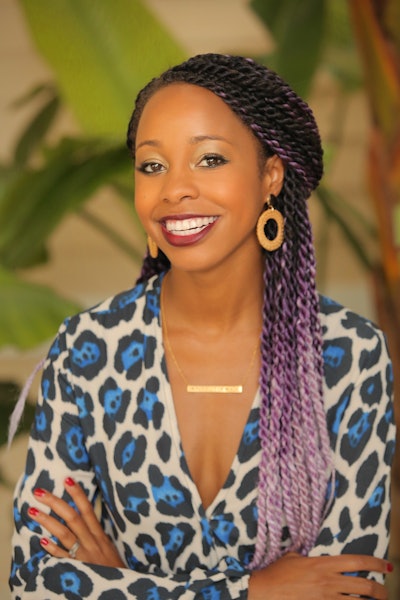 Photo: Courtesy of Erica Taylor Haskins
Photo: Courtesy of Erica Taylor Haskins
Taylor Haskins is the co-founder and chief growth officer for Tinsel Experiential Design, a New York-based event production company with clients including Mercedes-Benz, Spotify, L'Oreal, and Condé Nast. She is also the northeast regional coordinator for The Jackie Robinson Foundation.
Why racial diversity is crucial: "Prioritizing racial diversity and inclusion for events ensures that every aspect of the experience resonates in the right way—and importantly, not in the very wrong way—with guests and vendors. There are often cultural perspectives, traditions, and understandings that might be specific to one group that another group may not even be aware of. That awareness and respect for these cultural differences allow us to design events and experiences that are more meaningful, mindful, and colorful—in every sense of the word.
Over the course of our team's 10 years in business, we've seen this come into play in significant ways when those representative voices weren't in the room as decisions were being made. Having a more diverse group at the table could have avoided that very wrong (and often hurtful) choice in venue/catering/menu/entertainment."
The first step for change: "To paraphrase industry peer Geomyra Lewis, your Black professional colleagues aren't looking to take anyone's seat at the table. We're just asking you to make room for us, too. There are significant opportunities for influential media outlets and thought leaders to be mindful of that as they continue to host platforms and dialogues moving forward. In addition to the usual lineup of voices, it's important that Black and brown voices (along with other under-represented groups) are part of the conversation so that everyone's very real experiences can be shared, welcomed, absorbed, and amplified.
I would also add that, while it's so pivotal that these conversations are happening now, once this news cycle shifts to another hot topic, we need our partners and peers to continue making diversity and inclusion a priority. That extends to the make-up of company teams, vendor partnerships, press coverage, panelists, social media content, podcasts, and all of the touch-points that make up this ecosystem. Black and brown people shouldn't just be tapped to talk about race relations when it's a trending issue. This is just the first step of many as we move towards positive change together."
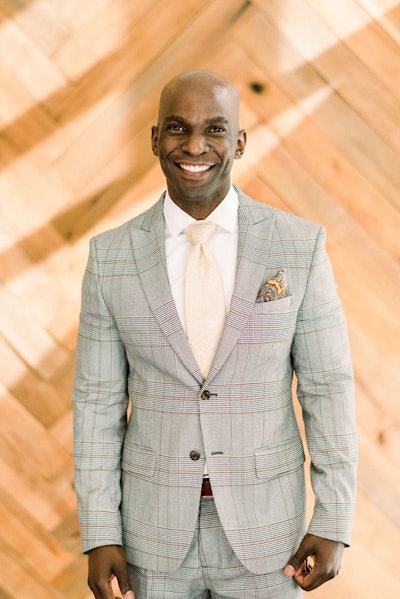 Photo: Courtesy of Andrew Roby
Photo: Courtesy of Andrew Roby
Roby is the owner of Andrew Roby Events, a 15-year-old boutique event management company based in Washington, D.C. Previous clients include The CW, the City of Alexandria, Vita Coco, and Susan G. Komen. Roby is also an Army veteran and a motivational speaker.
Why racial diversity is crucial: "When I think about racial diversity, I think of all the creativity that it holds. I like to use the crayon box as an example. A crayon box displays a variety of options to create not just one, but many beautiful masterpieces. Events are our masterpiece and come with multiple requests. I struggle to believe a predominately white event firm can effectively execute a Nigerian event, for example, without getting help from someone who is either Nigerian or has had experience servicing such an event. Failing to do so robs a client of such an experience.
Diversity ensures increased innovation, improved company reputation and ability to handle events in many cultures, and better social cohesion. Live events require connections. What deeper way to connect with people than brainstorming with diverse minds to ensure that connection happens?"
Where the industry is lacking: “Publicizing all incredible vendors. We see blatant racism through magazines who have never taken the time to vet vendors for their capabilities. White vendors are placed on ultimate guides, “best of” lists, and directories, in some cases not because of their ability to execute but because of their relationships with editors or annual membership dues.
We see this at award events, where the same people are recognized every single year as if no one else is capable of displaying the same level of talent if not better. Conferences and other events that provide speakers either have a panel of white women or a panel of white people—with no sense of the error this presents. When you only publicize white people as being the best in the land, it further deteriorates the vast efforts Black people and people of color make every single day to be seen as equals. It is impossible for me to believe that the best florists in the U.S. or the world are all white, despite notable magazines saying so.
Additionally, we as the event industry must [start] hiring or referring business to capable Black business owners. These are planners, designers, production teams, and many more with decision-making power. By no means is this asking for a handout. Covert racism will allow a person who has the means to share the wealth, to only do so with people who look like them—and that is appalling.”
The first step for change: “The first step is to understand what diversity and inclusion is, and note that they are not one-in-the-same. Change behavior by actively seeking to ensure racial justice in the workplace. When you create a diverse team, it ensures you get input from various sides and creative minds. When you hire vendors of different skin types, you get generational wisdom that you would never receive had you not placed them on the project.
Adamantly seek to hire and refer business to Black people and people of color that have the same standards as you. Take a diversity and inclusion course for you and your team to understand the things you never considered before. Invite Black professionals to private events and allow us to be in the room. There are so many industry events that take place that exclude Black event professionals. This isn't about not being invited to a party—however, these parties generate wealth and it is blatant racism to not include the industry at large.
Do the bravest thing you can ever do in the event industry, and that is hold your peers accountable for contributing to racial inequality. We all have influence and respect amongst our peers. Take a stand to rid this industry of the inequality that we have become comfortable with. To do this we have to be intentional. Stop using ‘I didn't know’ as the excuse. We all now know—let's act.”
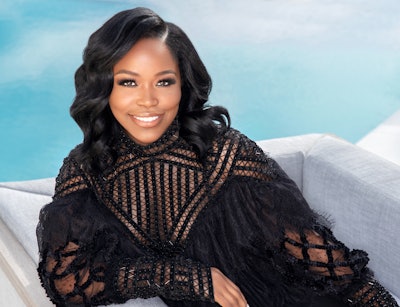 Photo: Courtesy of Miatta David Johnson
Photo: Courtesy of Miatta David Johnson
Johnson is the president and CEO of MVD Inc., an event production and media relations firm she founded with her sister Massah David in 2002. Based in Los Angeles, the boutique agency has worked with clients including Universal Music Group, Netflix, Kanye West, and Samsung.
Why racial diversity is crucial: "Racial diversity is not only crucial but essential in the event, meetings, and experiential marketing space—from the vendors you choose to work with to the executives that fill your C-suite down to your staff. Events are about the human connection. These gatherings are direct to consumer, and the event experience should reflect the world we live in. Black firms have the capacity and duality to speak to all audiences."
Where the industry is lacking: "I think the industry is lacking on all fronts. From the vendors that are hired, to contractors that are awarded, to agencies receiving RFPs, to trade and national coverage, the industry is failing people of color. Black-lead firms are not given the level of respect that our white counterparts receive, despite our expertise and extensive track record."
The first step for change: "It’s great to see an acknowledgment of the disparity, but the first step is implementing best practices that will begin to level the playing field. That starts with a long-term commitment to making a change in various organizations to address the systemic racism and lack of diversity and inclusion. That truly starts with opportunity, which is followed with Black firms receiving budgets that are industry standard and not only being pigeonholed into the “urban” realm—because if we are speaking truthfully, urban is general market. There are brilliant creators, fabricators, producers, and experiential firms that have the capability and drive but lack the opportunity and access."
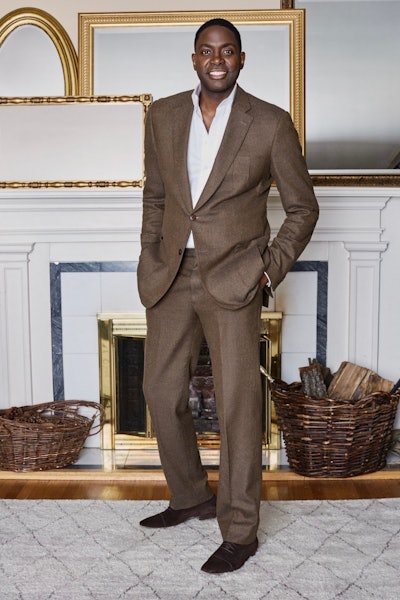 Photo: Courtesy of André Wells
Photo: Courtesy of André Wells
Wells is the founder and CEO of Events by André Wells, a full-service event planning and design firm in Washington, D.C. Past clients include FedEx, AT&T, the Walt Disney Company, and the Alvin Ailey American Dance Theater.
Why racial diversity is crucial: "Racial diversity is crucial for events because we live in a diverse world. We need to know and acknowledge who we are serving, why, and how. There are cultural differences from the way we speak to the things we eat. We have to be aware so that everyone has not a good, but a great experience at any event we produce. I always have said, I think when guests walk into any event they shouldn't have a want or a need that goes unanswered or isn't already thought about or addressed. That includes inclusiveness and diversity of thought and being."
Where the industry is lacking: "This industry sometimes lacks inclusiveness. Many times we as African-Americans aren't included on preferred vendor lists, panels, and 'top' lists, or invited to industry functions such as FAM trips, hotel openings, etcetera."
The first step for change: "Awareness! I think as an industry, we need to talk about racial diversity—and not only talk but have actionable steps with our live events community as a whole."
Interviews have been lightly edited for clarity.
A note from BizBash: The event industry was built on the desire to bring people together. Live experiences have been a critical catalyst for groundbreaking connections and conversations—but more importantly, they're a catalyst for change. As the voice of our industry, it's our responsibility to take a stance against racism, prejudice, and police brutality. BizBash is actively listening, reflecting, and taking action for our colleagues, the community, and our event industry family. We are dedicated to bringing marginalized voices to the table, raising them up on our platforms and in our industry. We see you; we hear you; we stand with you.




